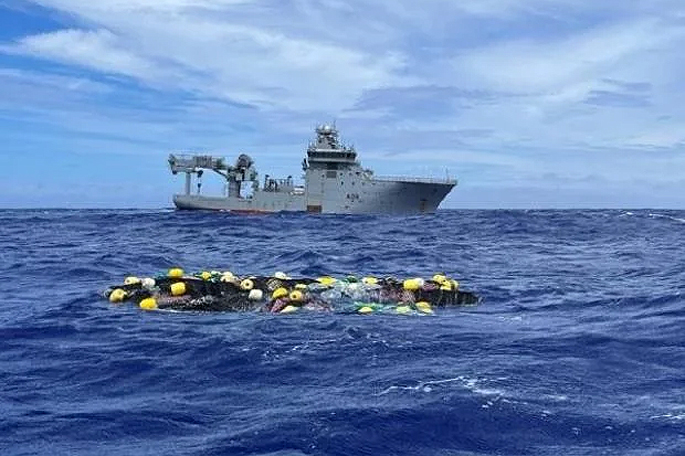The global supply of cocaine is at a record high, and New Zealand is becoming a hotspot for imports of the drug as South American cartels target comparatively higher prices.
Detective Inspector Albie Alexander of the police’s National Organised Crime Group told Stuff Aotearoa saw a “significant” increase in imports cocaine in 2023, “mirroring what is happening in the rest of the world”.
New Zealand continues to be an attractive destination for the Class A drug from South America, despite the demand being smaller than other drugs like methamphetamine and MDMA, says Albie.
The price of cocaine here ranges from $180,000 to $300,000 per kilogram.
“We have for some time been aware that Mexican and South American cartels are interested in selling their products in New Zealand because of the high retail prices people are continuing to pay.”
There's no evidence to substantiate that any cartels with direct links to South America have set up in New Zealand, but people are sent over to catch imports, says Albie.
Deportations have created strong links with organised groups in Australia, the detective says.
The Covid-19 pandemic had a disruptive effect on drug markets – nightclubs and bars were closed and people around the world were largely living in various states of lockdown.
But despite this, according to data from the 2023 global report on cocaine by the United Nations Office on Drugs and Crime (UNODC), the slump had little impact on long-term trends.
Almost 2000 tonnes of cocaine was produced in 2020, continuing a dramatic uptick in manufacture that began in 2014 when the total was less than half of today’s levels.
The surge is partly as a result of an expansion in coca bush cultivation which rose sharply in 2021, in parallel with a continuing growth in demand.
That surge is reflected in New Zealand, with interceptions including February’s 3.2 tonnes (3200kg) of the narcotic found floating in the ocean.
The cocaine, worth about $500m, was likely destined for Australia and had been dropped at a transit point in the middle of the Pacific Ocean.
Then in October, police and customs seized 140kg of cocaine at the Port of Auckland which had come from Ecuador via Panama.
The investigation, codenamed Blanco, identified the trend of organised crime groups aggressively targeting attempts to “rip”, or take possession of, importations while they were transiting through ports or associated facilities.
In November 2022, police and Customs busted another group, but this time they’d managed to get the cocaine past the border. Investigators found about 190kg of cocaine that had been extracted from a boiler from Ecuador.
An increase in Kiwis’ use of cocaine is also reflected in wastewater drug testing, says Albie.
“In recent years we have seen organised crime groups trying to drive up cocaine consumption and at the moment, our wastewater data has revealed a steady increase starting to get to around three kilograms a week. This is still small in comparison to the Australian cocaine market, which is significantly larger.”
In the past six years, NOCG has identified 25 trans-national organised crime operational cells, says Albie.
A cell is a group of foreign nationals, inserted into Aotearoa by a crime gang, to facilitate the import, export and distribution of drugs and then the remittance of profits out of New Zealand.
“This has resulted in people from 20 different countries being charged with serious drug dealing offending. ”
Australian outlaw motorcycle gangs are reportedly one of the key links between South American criminal groups and the Australian and New Zealand drug markets, says the UN office.
Convicted Auckland-based fraudster Miles John McKelvy is fighting extradition to the United States for what’s alleged to be a key role in a conspiracy to import $400kg of cocaine from Peru to New Zealand the US and Romania.
McKelvy was arrested in 2020 as part of a police investigation that also saw the arrests of two New Zealand Hells Angels members in Romania.
The Hells Angels members have been extradited to the United States to face charges by the Drug Enforcement Administration (DEA).
McKelvy is set to take his fight for extradition to the Court of Appeal after losing his High Court appeal.



3 comments
Easy money?
Posted on 24-01-2024 12:01 | By morepork
Apparently, some of these cartels are so rich that they are running their own ex-military submarines... And yet, we perceive Columbia as a "poor" country.
There is no way you can spin drug dealing as a reasonable way to make a living. It depends on misery and destruction of other people's lives. Eventually, the scales will inevitably be balanced. The Universe may be amoral, but, statistically, it is pretty fair.
Drugs
Posted on 24-01-2024 13:23 | By oceans
The laws relating to drug smugglers and suppliers in New Zealand are not tough enough. Anyone caught needs to be either put in jail and/or immediately deported WITHOUT APPEAL. Drugs ruin many lives not only the user. Actually, my personal view is a death warrant for these people. That deterrent might slow the trade down somewhat.
@Oceans
Posted on 25-01-2024 12:25 | By morepork
The penalty in China is death. (For > 50 grams...). I feel your POV but the trouble with capital punishment is that you can't undo it and innocent people can die. Despite their strictness, China still has drug trafficking: nearly 12 tons of heroin, methamphetamine, and ketamine seized nationwide in 2022. To be fair, 92% of this was imported from the usual suspects. History has shown us that capital punishment does not decrease the crime rate (it does make surviving victims feel better... but proper reparation could do that just as well.) The real battle is to prepare young people NOT to get into it by openly discussing and showing outcomes. I agree with you that traffickers should face harsher penalties than is currently the case.
Leave a Comment
You must be logged in to make a comment.